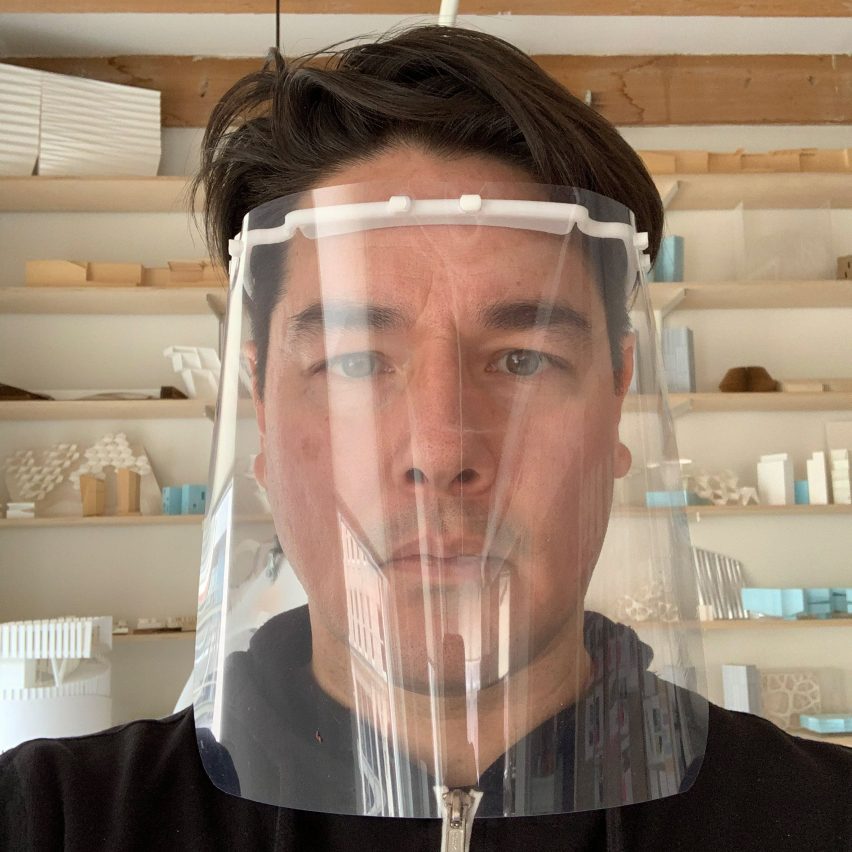
Architects across America including BIG, KPF and Gensler have teamed up as part of an open-source project to manufacture face shields to protect hospital workers treating coronavirus patients.
Firms across the country are using their own 3D printers and laser cutters to make the visors, which are being delivered to hospitals for distribution to front-line medical staff amid shortages of the safety devices.
Many of the architects are basing their visors on open-source files created by Eric Ceserberg of Swedish 3D-printing company 3DVerkstan. The simple design consists of a laser-cut clear plastic shield that covers the face and a printed visor band that fits across the user's forehead.
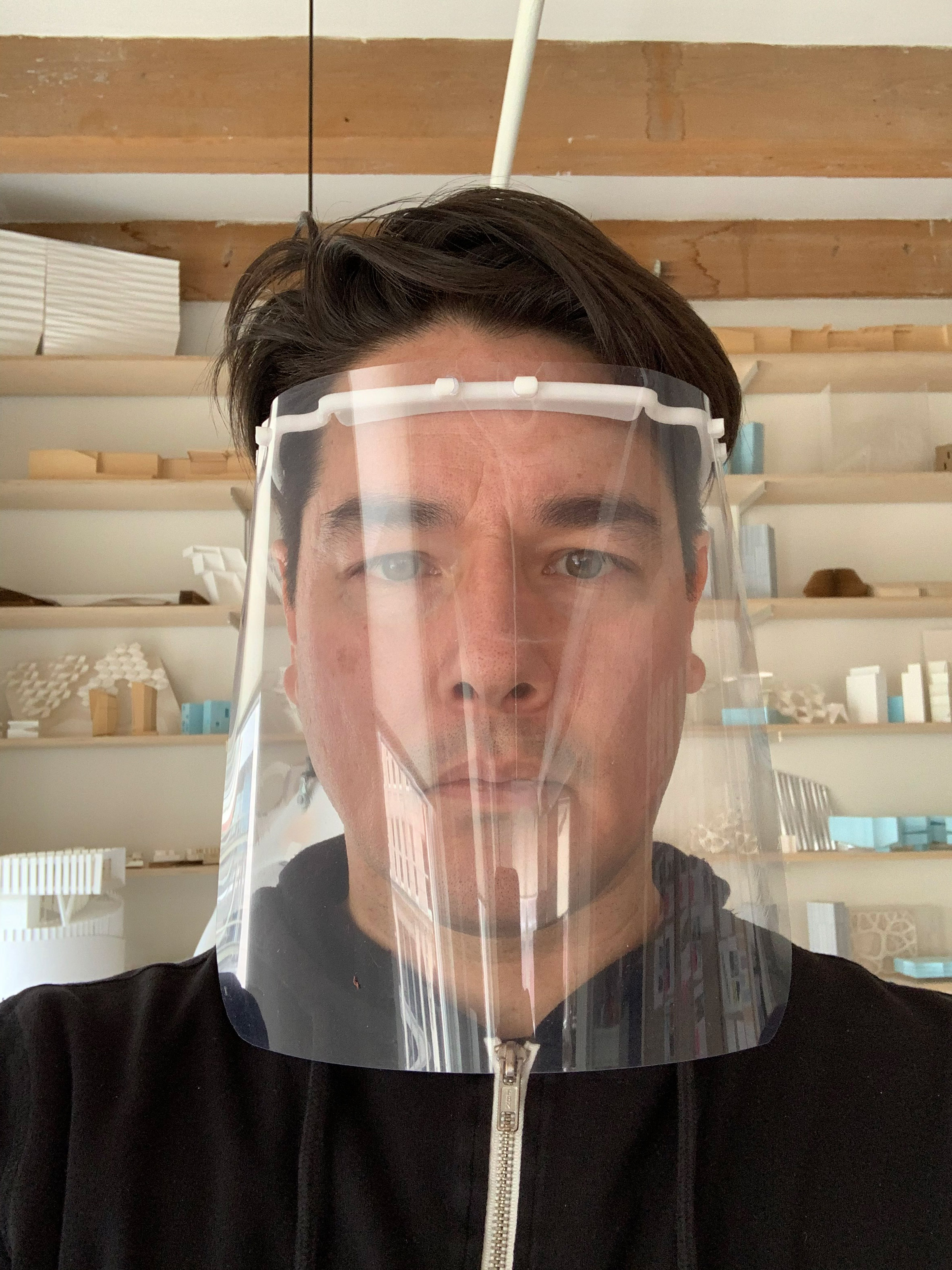
A standard three-hole punch is used to make holes in the plastic shield so it can clip onto the visor.
"It is brilliant in its simplicity," said architect Eric Höweler, principal at Boston studio Höweler + Yoon, one of the firms helping to make visors.
"A simple 3D-printed PLA [polylactic acid] part plus a clear sheet with three punched holes and we get a pretty effective face shield," he said.
Other architects printing the shields, which help protect the wearer's face from body fluids, include Handel Architects, Bjarke Ingels Group (BIG), Grimshaw, Terreform One, Kohn Pedersen Fox (KPF), Gensler, Weiss Manfredi and Brooks + Scarpa.
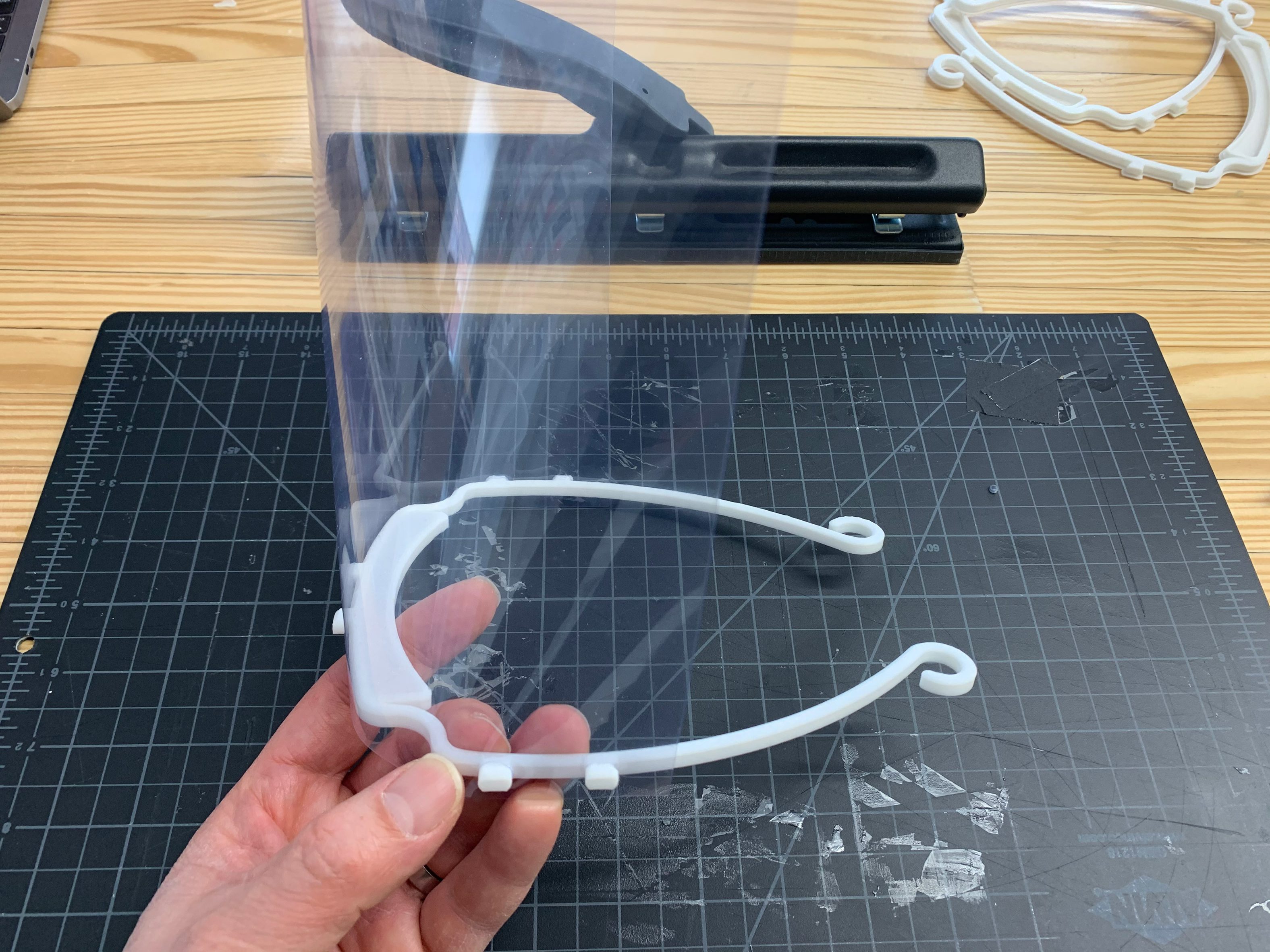
The effort is being coordinated by the Architecture, Art and Planning (AAP) faculty at Cornell University in Ithaca, New York State.
"Yesterday morning we delivered hundreds of printed visors and laser-cut shields directly to Weill Cornell Medicine in New York City," said Jenny Sabin, professor of architecture at Cornell and head of Ithaca architect Jenny Sabin Studio.
"They will go through a sanitising process and then will be distributed to doctors, nurses, and healthcare professionals on the front lines."
Sabin added: "It's just amazing how the network has grown in less than four days!"
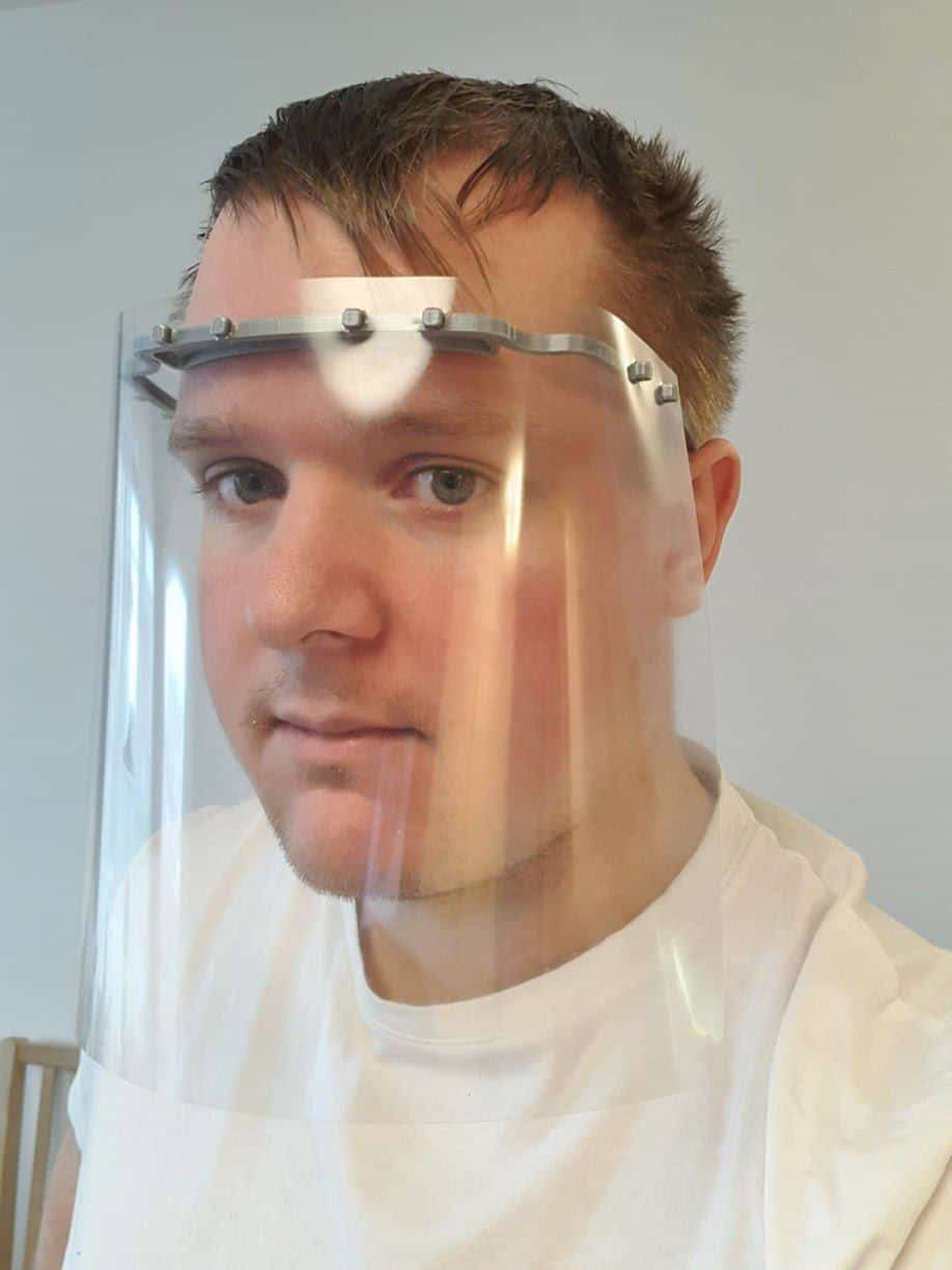
The visors, which are based on the 3DVerkstan design, have been tested and verified by Weill Cornell Medicine, Cornell's medical school in New York City. Sabin has uploaded manufacturing instructions and advice for others who want to participate.
"Weill Cornell Medicine estimated a need for 20,000-50,000 protective face shields per day in NYC," Sabin added. "We have since learned that their need for the visor's printed component is much lower at around 3,000 parts [per day]."
The transparent plastic sheet that forms the shield, and which needs to be replaced or sanitised after each shift, is in greater need, Sabin said.
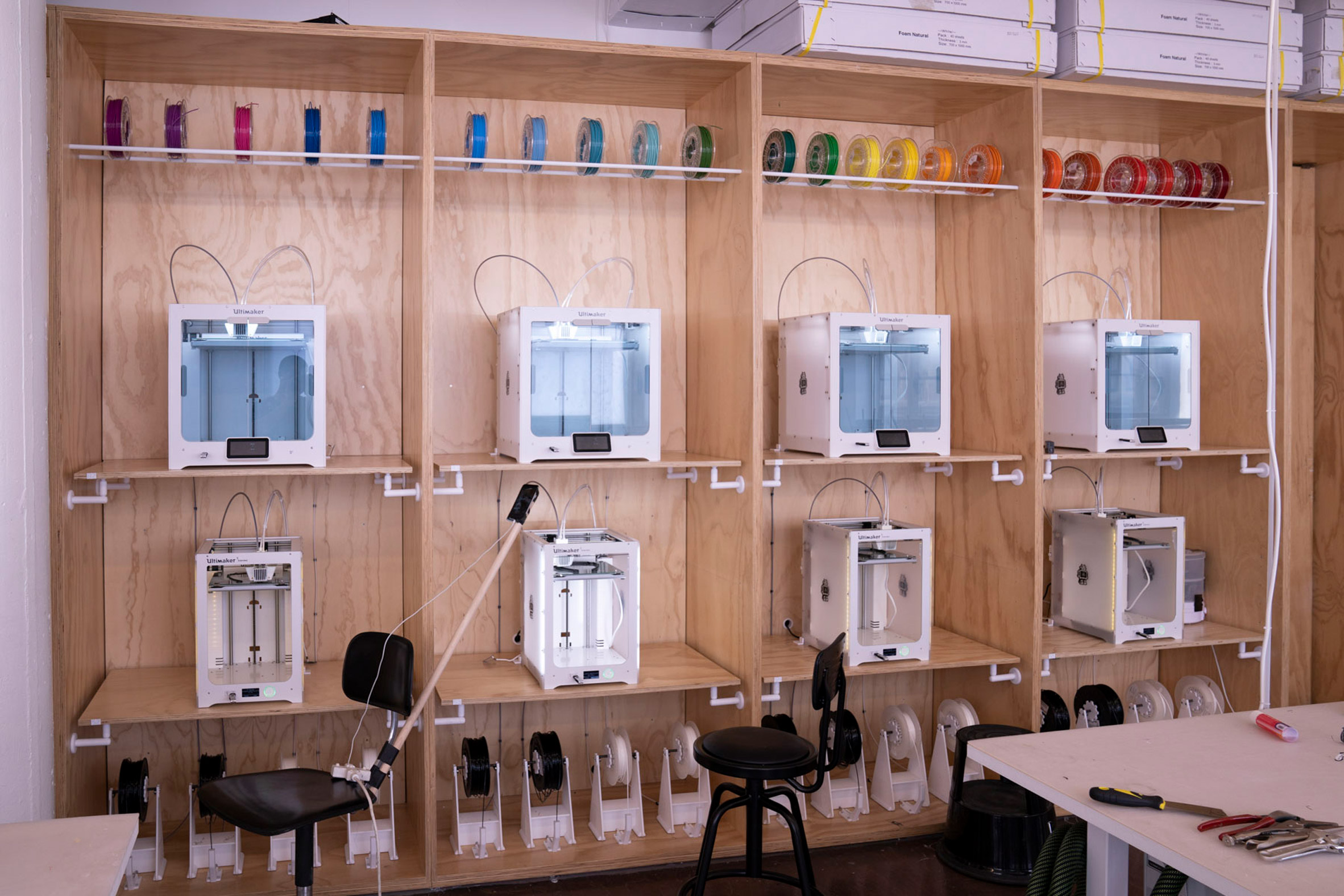
The mobilisation followed a request for help from colleagues at Weill Cornell Medicine.
"Last week Weill Cornell Medicine in NYC reached out to see if Cornell faculty could help with the need for PPEs [personal protective equipment]," said Meejin Yoon, dean of Cornell's Architecture, Art and Planning school and partner at Höweler + Yoon.
"As you know, there is a national shortage and a supply chain issue."
Since the school's workshops have been closed due to the coronavirus pandemic, the faculty decided to call on fellow architects to help out.
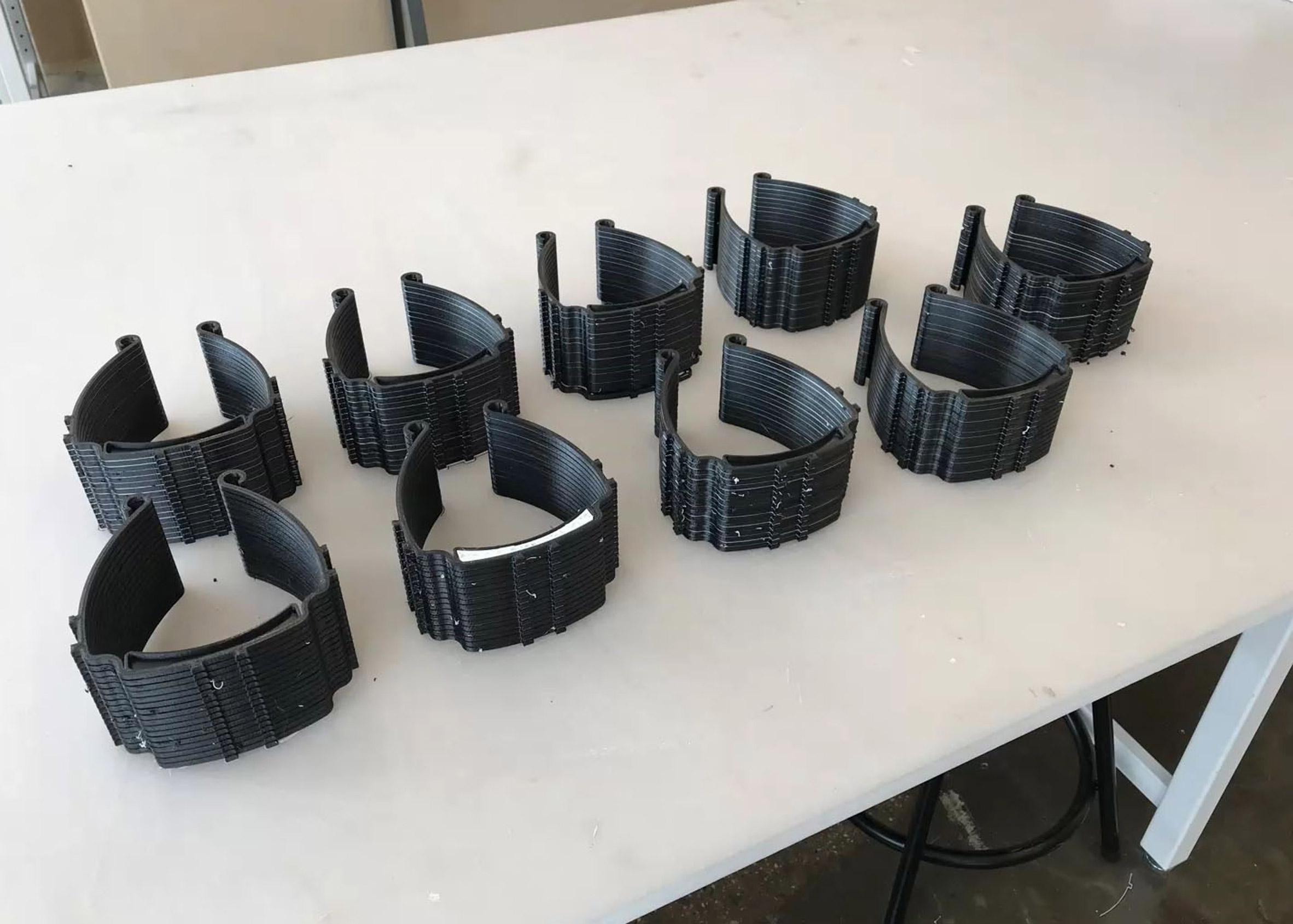
"We decided this was an essential need and critical to support this effort," said Yoon. "Jenny started 3D printing immediately from her lab, and we used all our rapid prototyping machines towards this effort in college as well."
Architecture firms across America have joined the effort, with BIG in New York City dedicating its model shop to producing the visors.
"In response to the acute and escalating need for personal protection equipment here in New York City and the plea of governor Andrew Cuomo and being personally reached out to by doctors and nurses from both Cornell and Mount Sinai Hospitals here in New York we had the possibility to mobilise our 3D printing and modelmaking capabilities to make this scarce life-saving equipment," said BIG partner Kai-Uwe Bergmann.
BIG expects to be able to produce 5,000 visors per week after adapting Eric Ceserberg's open-source file to allow up to 50 visor components to be printed simultaneously instead of one at a time.
"As of next week we will also be adding our London and Copenhagen offices towards this production as we have established ties to medical institutions," added Bergmann.
The global architecture and design community has mobilised in response to the Covid-19 pandemic. Spanish studio Nagami Design has adapted its furniture production facilities to make face shields while leading fashion brands are producing surgical masks and architects Carlo Ratti Associati has developed a design for intensive care units made from converted shipping containers.
Read all Dezeen's coverage about the coronavirus pandemic.
The post American architects mobilise to make coronavirus face shields for hospital workers appeared first on Dezeen.
from Dezeen https://ift.tt/2yj0fkH

No comments:
Post a Comment